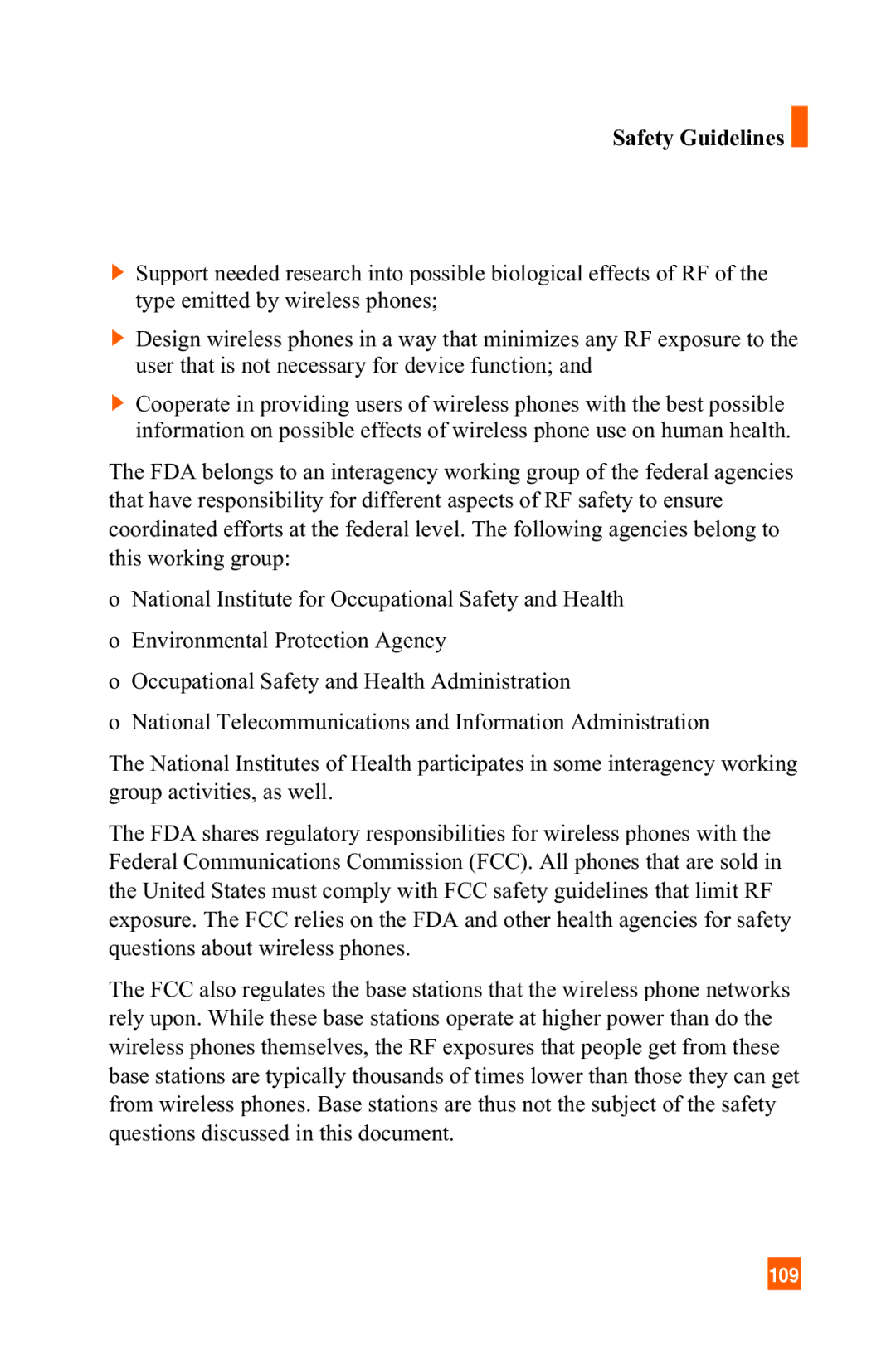Safety Guidelines 
]Support needed research into possible biological effects of RF of the type emitted by wireless phones;
]Design wireless phones in a way that minimizes any RF exposure to the user that is not necessary for device function; and
]Cooperate in providing users of wireless phones with the best possible information on possible effects of wireless phone use on human health.
The FDA belongs to an interagency working group of the federal agencies that have responsibility for different aspects of RF safety to ensure coordinated efforts at the federal level. The following agencies belong to this working group:
oNational Institute for Occupational Safety and Health
oEnvironmental Protection Agency
oOccupational Safety and Health Administration
oNational Telecommunications and Information Administration
The National Institutes of Health participates in some interagency working group activities, as well.
The FDA shares regulatory responsibilities for wireless phones with the Federal Communications Commission (FCC). All phones that are sold in the United States must comply with FCC safety guidelines that limit RF exposure. The FCC relies on the FDA and other health agencies for safety questions about wireless phones.
The FCC also regulates the base stations that the wireless phone networks rely upon. While these base stations operate at higher power than do the wireless phones themselves, the RF exposures that people get from these base stations are typically thousands of times lower than those they can get from wireless phones. Base stations are thus not the subject of the safety questions discussed in this document.
